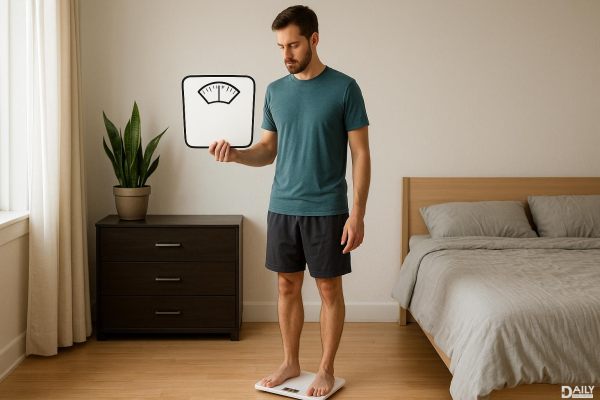If you're a 5'10" dude wondering what the magic number on the scale should be, here's the deal—there's no one-size-fits-all answer. The ideal weight for someone your height depends on factors like muscle mass, body composition, and overall health. But generally speaking, a healthy range for a 5'10" man falls between 149 and 183 pounds, according to the National Institutes of Health. That said, obsessing over the scale isn't the move. Instead, focus on feeling strong, energized, and confident in your own skin.

Body Mass Index (BMI) is that old-school calculation that divides your weight by your height squared. It’s been used forever to categorize people as underweight, normal, overweight, or obese. But here’s the catch—it doesn’t account for muscle vs. fat. A jacked athlete could have the same BMI as someone with a higher body fat percentage, even though their health risks are totally different. So while BMI can be a starting point, don’t let it stress you out if you’re packing muscle. Other metrics, like waist circumference and body fat percentage, give a clearer picture of whether you’re in a healthy zone.
Let’s get real—weight alone doesn’t tell you much. A guy who’s 180 pounds with 10% body fat looks and feels way different than someone at the same weight with 25% body fat. Muscle is denser than fat, so if you’re hitting the gym regularly, you might weigh more but still be leaner. Instead of fixating on the scale, pay attention to how your clothes fit, your energy levels, and your strength gains. If you’re crushing workouts, recovering well, and feeling good, you’re probably on the right track, even if the number isn’t what you expected.
Finding your ideal weight isn’t about hitting some arbitrary number—it’s about finding a balance where you feel your best. Start by assessing your lifestyle. Are you active? Do you eat mostly whole foods? Are you sleeping enough? These factors play a huge role in your overall health. If you’re unsure where to start, consider getting a body composition test (many gyms offer them) or consulting a nutritionist. They can help you set realistic goals based on your body type, metabolism, and fitness level.
You can’t out-train a bad diet, so what you eat matters—a lot. Focus on whole, nutrient-dense foods like lean proteins, veggies, whole grains, and healthy fats. Protein is key for maintaining muscle, especially if you’re active, so aim for at least 0.7 to 1 gram per pound of body weight. Carbs aren’t the enemy either—they fuel your workouts and keep your energy steady. And don’t skimp on healthy fats (think avocados, nuts, and olive oil), which support hormone production and overall health. Hydration is another biggie—shoot for at least half your body weight in ounces of water daily.
Strength training is awesome for building muscle and boosting metabolism, but don’t sleep on cardio and mobility work. A mix of resistance training, heart-pumping cardio (like running, cycling, or HIIT), and flexibility exercises (yoga or dynamic stretching) keeps your body balanced and reduces injury risk. Aim for at least 150 minutes of moderate cardio or 75 minutes of intense cardio per week, plus two to three strength sessions. And remember—consistency beats intensity. Showing up regularly, even for shorter workouts, pays off way more than going all-out once in a blue moon.
You could be eating clean and training hard, but if you’re skimping on sleep or drowning in stress, your progress will stall. Poor sleep messes with hunger hormones (hello, cravings) and recovery, while chronic stress spikes cortisol, which can lead to fat storage, especially around the midsection. Aim for seven to nine hours of quality sleep per night, and find stress-busting habits that work for you—meditation, walking, or even just unplugging from your phone. Your body (and mind) will thank you.
If you’re struggling to find a healthy weight or feel like your habits aren’t getting you where you want to be, don’t hesitate to reach out for help. A registered dietitian can tailor a nutrition plan to your needs, while a personal trainer can design a workout program that aligns with your goals. And if you’re dealing with persistent fatigue, mood swings, or other red flags, check in with your doctor—sometimes underlying health issues (like thyroid problems) can affect weight and energy levels.
At the end of the day, the “ideal” weight is whatever lets you live your best life—strong, healthy, and happy. Ditch the scale obsession, focus on sustainable habits, and trust the process. Your body will find its natural balance when you treat it right.
























